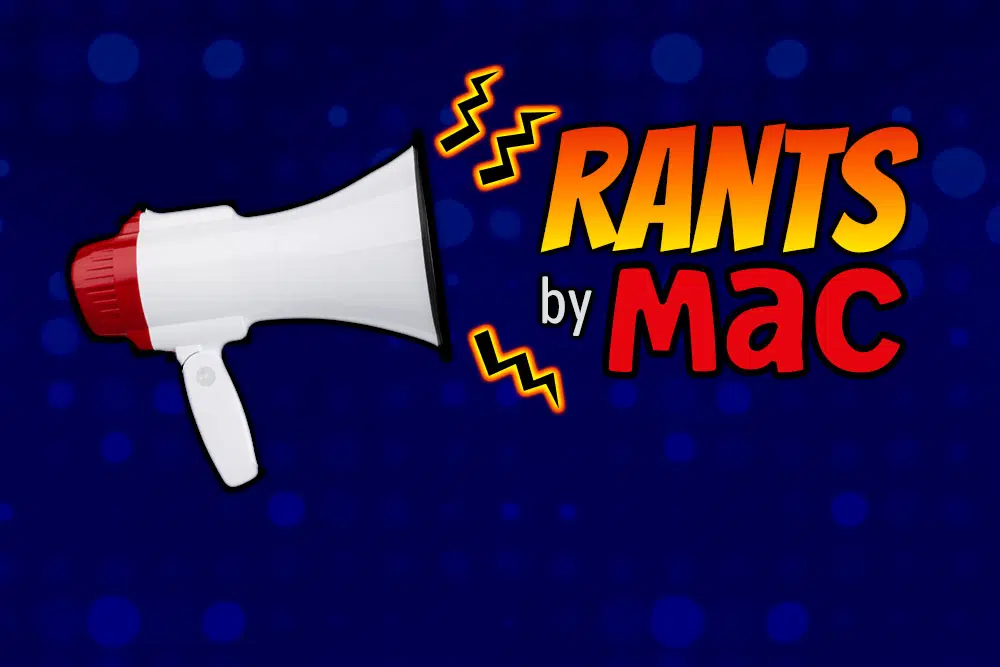I messed up; I’ll do better.
Wouldn’t that have been easy? Isn’t that what you wanted to hear?
In the wake of the recent security breach involving leaked war plans on a group chat, what if the participants had simply said, “I messed up; I’ll do better, and it won’t happen again.” This whole mess would have blown over by now.
When Mac Jr. was eight, he had already learned not to blame the sun in his eyes when he dropped a fly ball. By ten, he had learned to catch fly balls.
 So why can’t our nation’s leaders simply own their mistake, apologize and learn to do better?
So why can’t our nation’s leaders simply own their mistake, apologize and learn to do better?
Instead, the response to an obvious problem has brought intense criticism of the reporter involved, insinuation that he sneaked into the chat, denigration of the publication he works for, and disparagement of his talent, his ethics, and his moral character.
Tulsi Gabbard, John Ratcliffe, and other Cabinet members “cannot recall” the details of a group-chat they were on, where a military attack was discussed.
Others brought up Hillary Clinton or echoed the popular “FAKE NEWS” or “HOAX.”
Secretary of Defense Pete Hegseth argued, “There’s no units, no locations, no routes, no flight paths, no sources, no methods, no classified information,” and then added that no sensitive information was divulged in the chat.
Those denials led the reporter involved, Jeffrey Goldberg, to publish many of the texts from the call. Goldberg had not previously shared that information because of his concern for their secret nature. But with repeated attacks on his credibility, he decided to produce his proof. It’s tough to call this “Fake” when there are screen shots to share.
The response from the Trump administration has kept the story alive. Instead of addressing the real issue, the fact that highly sensitive military information somehow ended up circulating in a casual chat thread, the administration has chosen to attack, not the problem, but the reporter who had the audacity to break the story.
We found out about this one breach, simply because a journalist was inadvertently added to a sensitive group-chat and no one in the group checked. How many other unsecured chats have gone on that we don’t know about? Can we just fix the problem?
Deflect and distract the public. Blame the messenger. Call it fake news. Question the reporter’s political affiliation. While being painfully transparent, it is divisive (do we need more divisiveness?) and it feeds the story, keeps it alive. Worse yet, the American public and the rest of the world, can all see exactly what is happening. If you don’t like the truth, it does little to assail the truth-teller.
Ah, the truth: Classified military plans should never have been accessible through any informal channel, let alone a group-chat. Instead of owning that, the administration is trying to smear a journalist for exposing the problem.
The leaked texts were real. The security breach was real. No amount of spin will make that go away. Denying reality only makes the administration look incompetent and untrustworthy. If you lie about unimportant things, why should anyone trust you with the important ones? If this is how they handle a domestic, political embarrassment, how will they manage an actual crisis?
The irony here is that the administration could have had all this behind them by now. Most people would have been willing to move on, forgive and forget, with a simple mea culpa? Trust is not built through denial, but through accountability. Mistakes happen. The public understands that. Acknowledge the mistake. Own it. Learn from it.
We don’t care if the sun was in your eyes; just don’t drop the ball.
Curt MacRae, a resident of Coldwater, MI, publishes regular opinion columns
To be notified by email when a column is published, or to offer feedback email rantsbymac@gmail.com




Comments